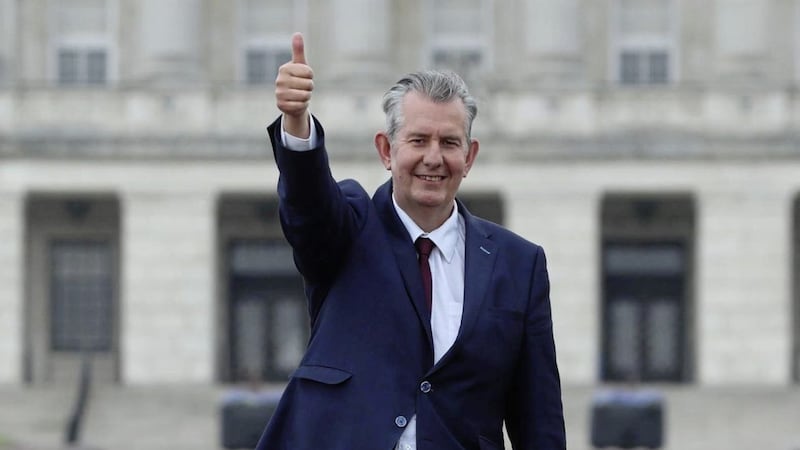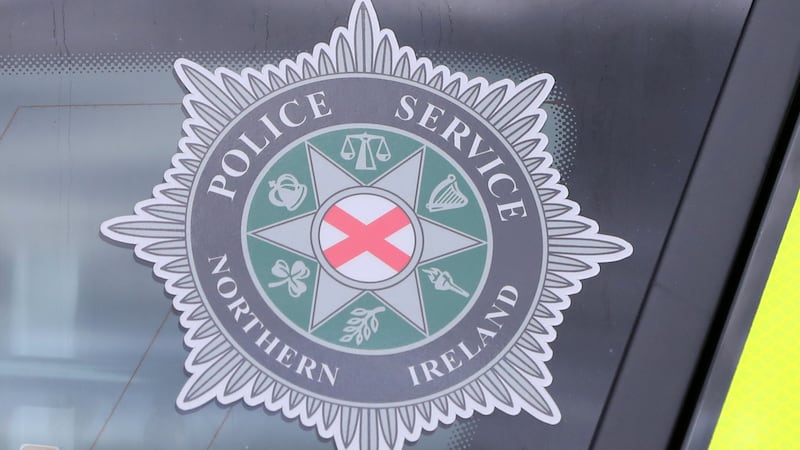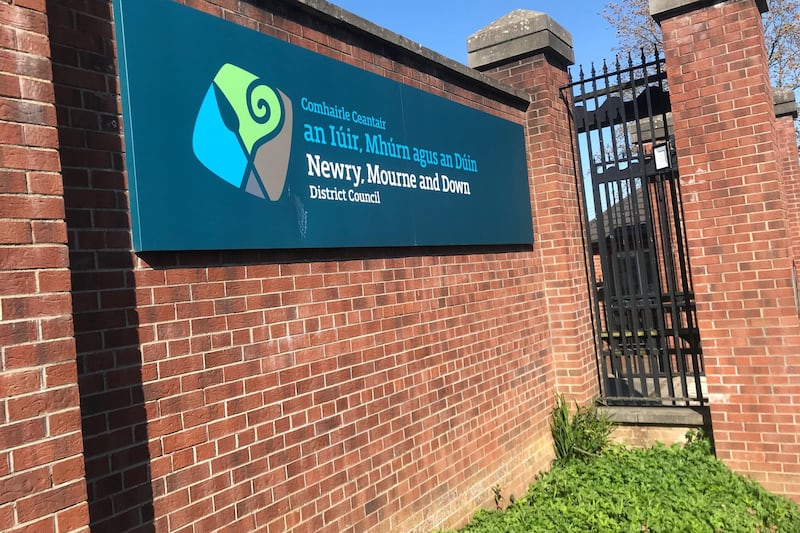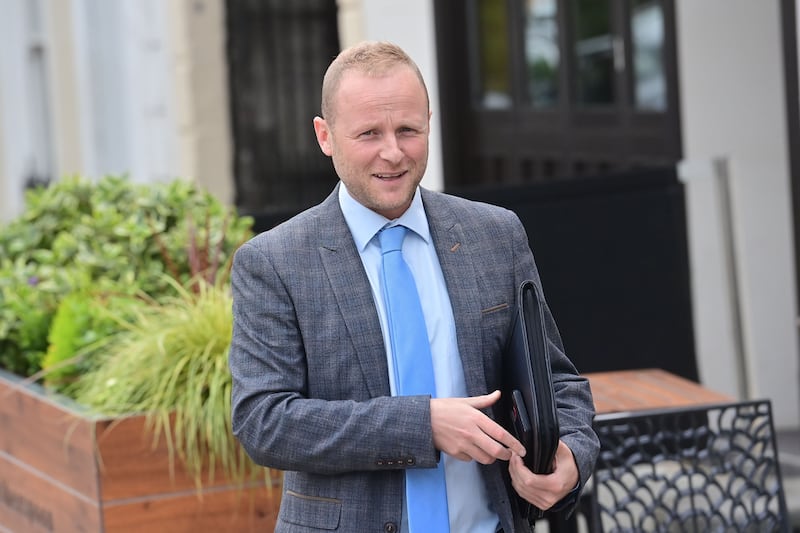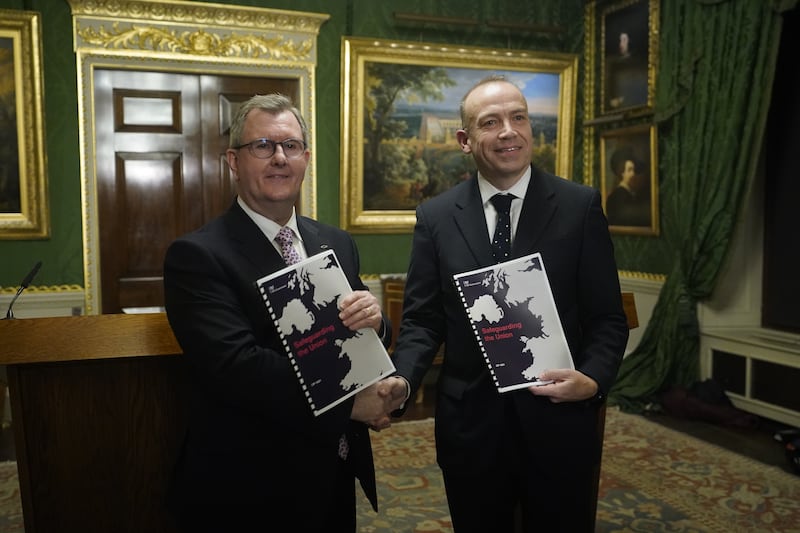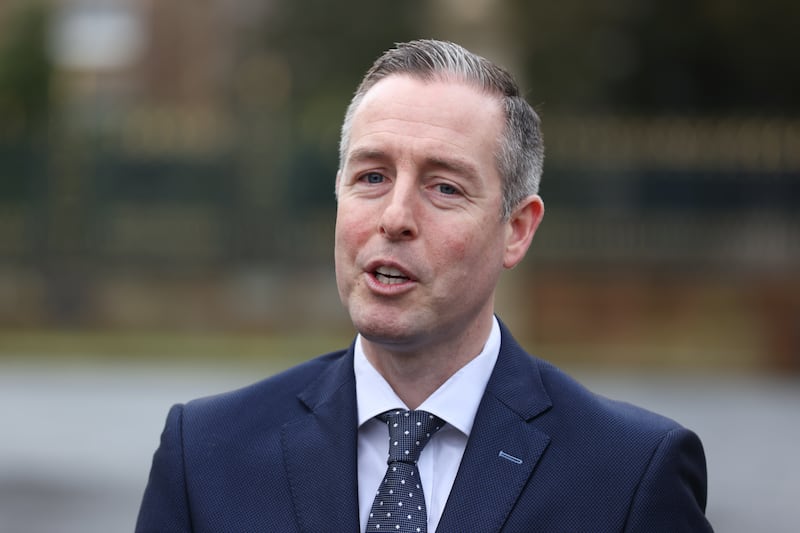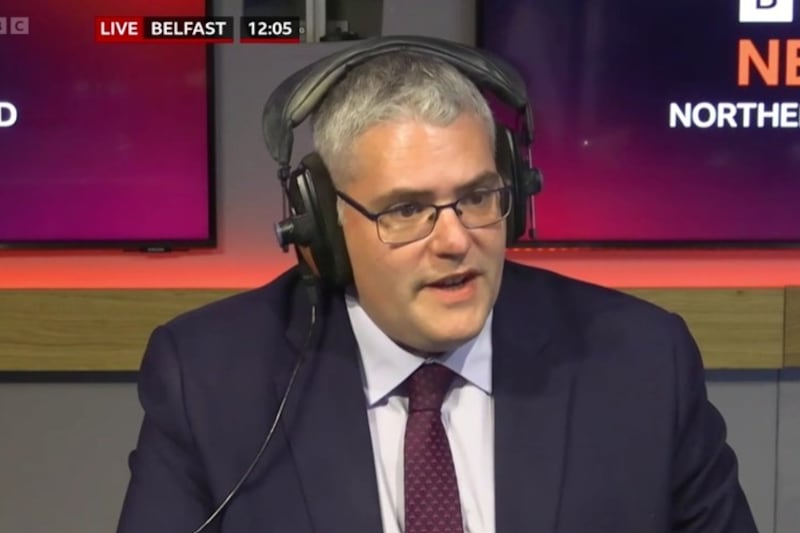TO SUGGEST underhandedness and scheming in internal DUP matters is something new overlooks the manner in which Ian Paisley, the party's founder and leader for more than three decades, was ousted in 2008. That coup was less public but arguably the bad feeling it generated played a role in the recent heave against Arlene Foster. In politics, personalities and sentimentality are subordinate to the desire for power.
Setting aside any comparison between Peter Robinson and Edwin Poots' leadership credentials, the major difference between these two transitions of power within the DUP, 13 years apart, is the state of the union and of unionism.
The situation Peter Robinson inherited was much more promising, both in terms of making the devolved institutions work and consolidating the DUP's position as unionism's biggest party. With a handful of exceptions, he had the backing of the party. There were inevitable hiccups and crises along the way but the former East Belfast MP had the tactical nous to cope with most of the problems that confronted him.
The process that has brought Edwin Poots to power makes Ian Paisley's overthrow look compassionate in comparison. The agriculture minister was part of a group that plotted against Mrs Foster, and in the words of Mr Robinson, "humiliated" the first minister. There may have been some efforts at rapprochement over recent days but it has the appearance of face-saving rather than genuine grace.
The defenestration of Mrs Foster and the subsequent leadership contest has exaggerated existing divisions and alienated those in the party outside the fundamentalist wing. Instead of weighing up each candidate's strategy and vision, the leadership campaign quickly deteriorated into a bitter contest between personalities and rival camps, Mr Poots' victory secured on a vague promise to return the party to its Christian roots.
It has left a series of damaged relationships in its wake. Defeated leadership candidate Sir Jeffrey Donaldson, East Belfast MP Gavin Robinson and South Antrim MLA Pam Cameron are among up to a dozen elected representatives who must not only be concerned about the potential direction the party will take over the coming months but also whether their own positions will be undermined.
In his News Letter column yesterday, Mr Robinson urged his successor to unite the DUP, pointing out that "divided parties do not win elections". No doubt, Mr Poots sees this a priority but he has also signalled his intentions to "reform" the DUP, a process that is unlikely to be entirely painless.
Yet focussing on internal matters and reshaping the party to his liking may prove time-consuming and distract his energies from the greater challenges, namely saving the DUP's electoral skin from an Alliance-TUV pincer movement and, in the longer term, protecting the union at a time when the north's constitutional status has never been more uncertain.
Mr Poots may have the best will in the world but does he have the skills, vision and breadth of support necessary to get his party and the electorate behind him?
The widely held contention that there was no obvious contender to succeed Arlene Foster has yet to be disproved and the new leader does not have the luxury of time ahead of a crucial assembly election next year. Bringing about a change of leadership was the easy bit, healing the internal wounds while implementing a reform agenda and putting the DUP back on strong footing is challenge of a different magnitude altogether.
